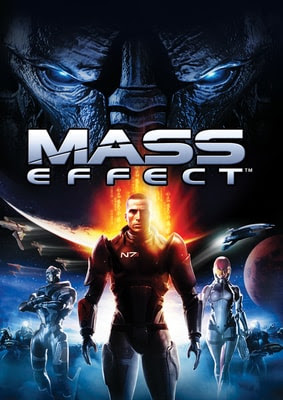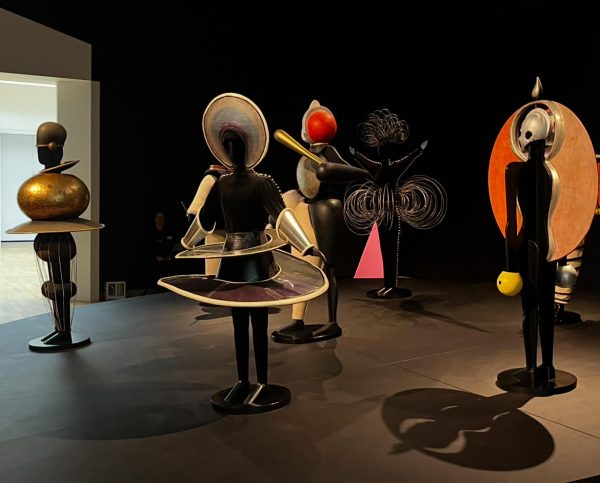Mass Effect Review

Photo courtesy of Wikipedia
Over this summer, I became completely engrossed in the video game trilogy, Mass Effect, after buying “Mass Effect Legendary Edition”.
Before this, I had only played “Mass Effect Andromeda” which is widely considered the black sheep of the franchise. The good thing about this, though, is that Andromeda, for the most part, ignores the events of the original Mass Effect trilogy. This meant that I was able to experience this trilogy from a completely new perspective.
So for a new player, how does this legendary trilogy hold up?
Well, I am happy to say that this trilogy completely blew all my expectations out of the water. In my not so humble opinion, the Mass Effect trilogy is not only the best trilogy in all of gaming but also one of the best trilogies ever made.
My reviews of each of the games will be split into 3 separate articles, one for each game, to be released later in The Comenian. This review covers the first game, simply named “Mass Effect.”
2008’s “Mass Effect” marks the beginning of the series and after release, had a massive effect on the games industry (yes, pun intended). So what made this game so revolutionary to the industry? Was it the gameplay? Well not really. The original story? Well, maybe. The graphics? Eh.
So what was it? What was the golden nugget that spurred such a legendary franchise that enthralled gamers for almost a decade?
Nothing.
What I mean by this is that there is no holistically unique aspect of this game.
The gameplay plays like a standard late 2000s third-person shooter like “Gears of War.” The story and art design are heavily inspired by other major sci-fi franchises such as “Star Wars” and “Star Trek”. What makes this game so special is that it takes a whole bunch of unoriginal ideas from a litany of other franchises and produces its own take on them. It builds what feels like a living, breathing universe.
This review will be split into four different parts: Soundtrack, Graphics/Art Design, Gameplay, and Story. This will also only review the 2021 Legendary Edition, not the original 2008 release of the game.
First off, the soundtrack is great and perfectly fits the tone and atmosphere of these games. It’s not jaw-dropping or anything but the soundtrack is memorable enough to elicit a reaction when you listen to it, but you likely wouldn’t be able to hum to the soundtrack as you can for “Star Wars” and games like “Red Dead Redemption 2.”
On a side note, the main theme is astounding and evokes a large sense of mystery and discovery. It is beautiful and makes you feel like you are about to step into a completely new universe to explore.
Score for the Soundtrack 8/10
If the original game was being considered, the score for the Graphics and Art Design would be significantly lower, but with all the enhancements from the Legendary Edition remaster, the game looks significantly better.
Faces look more realistic, the lighting is less dull than before and gives the game a nice visual flair, and the overall aesthetic and textures of the game look much better.
With that being said, this is still a game from 2008, so don’t go in expecting modern-looking graphics like “The Last of Us Part II”. With its age also comes some design limitations; so many of the environments can look the same or have similar color palettes. Like many games from the time, there are a lot of browns and greys here.
One aspect where this game knocks it out of the park is the character and ship designs. Every alien race looks great with each one looking distinctly different from the other.
Compare this to a franchise like “Star Wars,” where a lot of the alien races tend to blend together, the aliens in “Mass Effect” all feel unique and just the design alone tells a lot about each specific race and their culture.
The bulky and aggressive design of the Krogan implies that they are a warrior race, the slick and refined look of the Asari reveals that they are wise and civil, and the gruff and imposing stature of the Turians points to their assertive nature and military thinking.
The ship design is also very good, maybe not as good as “Star Wars” but good nonetheless. The Citadel is one of the coolest space stations in sci-fi and the developer, Bioware, does an excellent job at making this station feel like the center of galactic civilization.
Of course, it would be a disservice if I didn’t mention the famed SSV Normandy, the ship you command, whose slick and efficient design rivals that of the most iconic sci-fi space crafts. It’s hard to put into words why, but undeniably the ship looks incredible, both in and outside the ship.
Score for the graphics/art design 9/10
The biggest point of contention about this game is when people talk about the gameplay and rightfully so.
It’s no secret that this game has aged over time and that reigns true even in the remaster. Shooting and aiming aren’t the best, cover mechanics are slow and clunky, and abilities aren’t anywhere near as cool or useful as in the other games.
This doesn’t mean the gameplay is bad or even mediocre, it just means that those aspects are now outdated by today’s standards. One aspect of the gameplay that many people overlook is the dialogue and conversation system which acts as a core aspect of the game.
In this game, you talk to people almost as much as you are going around shooting Geth androids. The actual writing aside, the dialogue system is very good and completely changed how RPG conversation systems were handled. This is because instead of having a multitude of options that state exactly what you want, they have a wheel with short summaries of what you are going to say.
At first, this may seem like a downgrade, but in reality, it greatly increases the flow and pacing of conversations because there isn’t a long pause while you read all the options. It makes conversations feel more natural, which is good, especially since the protagonist is voiced which was also uncommon for RPGs back then. Nevertheless, for the story the developers were going for, this dialogue system is near perfect but some issues start to show in the sequels a bit.
Score for the gameplay 8/10
Now, it’s time for the main course and the main appeal of these games: the story.
Out of every aspect I have talked about so far, the story is easily the best part. In this game, Bioware builds such an interesting and engrossing world that almost immediately grabs you the second the game starts. This may seem like hyperbole, but this universe is genuinely one of the best — not only gaming but in all of fiction.
From the alien races, galactic politics, and the history surrounding this galaxy, everything about this world feels so well thought out.
The game takes place in the year 2183 approximately 26 years after humans discover an ancient alien artifact on Mars that thrusts human technology forward by 200 years and led to them discovering the wider galactic civilization.
Why is this little history lesson important? It’s because it sets the stage for the lore behind the entire series. For once, humanity isn’t dominating galactic civilization. In fact, they are now seen as the underdogs, which sets up an interesting dichotomy between this and other sci-fi universes where humans are usually the top dogs.
While the premise is cool, it wouldn’t be worth anything without good writing and characters and thankfully this game has both in spades. While the overall plot of the game is a pretty simple race against time to find a MacGuffin, what makes it so great is the characters and surrounding lore of this world. Simplicity is by no means a bad thing though, some of the best stories are very simple but are still engaging and inspiring.
As many may know this game has some of the most memorable characters in gaming with most having great performances along with stellar writing that makes each character have their own distinctive personality, especially the squadmates. With your squad, you learn their history, culture, motivations, and more. It makes them feel less like stereotypical video game sidekicks and more like fully realized and fleshed-out characters.
Throughout the game, you build a genuine friendship and sense of comradery with the members of the Normandy. Two of the standouts are Garrus Vakarian, a Citadel security agent investigating a rogue high-ranking soldier, and Liara T’Soni, a researcher studying a long-lost civilization. These two have some of the best arcs and journeys across the entire series.
I’d be remiss if I didn’t talk about the iconic Commander Shepard, who serves as the protagonist throughout the series and sports the famous N7 logo that has become synonymous with the series.
You can choose Shepard’s gender, facial appearance, childhood experience, and military background. This does not mean though that Shepard is purely a vessel for the player to inhabit; they are still their own character with pre-set traits. The game strikes a balance between having a traditional RPG character that is just a blank canvas for the player and having a pre-set character, such as “The Witcher” series’ Geralt of Rivia.
This may sound messy, but it’s used to great effect as Shepard is interesting and engaging from a writing standpoint, but also leaves that personal mark that helps players personally relate with the character and care more about what is going on. Though I will say that out of all the games, Shepard is the worst here, but that’s to be expected. Shepard just gets a lot more room to develop and grow in the next two games as the stakes get even higher.
If I were to levy criticism against the story, I’d say that the ending feels very cheesy, rushed, and undercooked. After the final boss, it feels like the devs just rushed to the finish line. It doesn’t feel like a proper conclusion and more like when you don’t have enough time to finish an essay so you only have one sentence in the final paragraph.
The final battle has major implications and consequences for the rest of the series, but you see little to none of the effects here besides a brief conversation. It’s a good thing that it’s so easy to jump right into the second game otherwise this would leave a much more sour taste in my mouth.
Overall, the story is excellent and provides an incredible cast of characters, and builds one of the most interesting and lived in sci-fi universes to date even if the ending is a little lackluster
Score for Story 9/10
“Mass Effect ” may be a little dated when compared to modern games, but it nevertheless is a great game that kickstarted an iconic saga that still has gamers enthralled to this day. Yes, it is a bit rough around the edges in some places, but many of these issues are forgivable because of how well-written the story and characters are. For the first entry in a trilogy, this game provides an extremely solid foundation for the next games to build off of and the perfect amount of room to expand this universe.
Overall score 8.5/10






